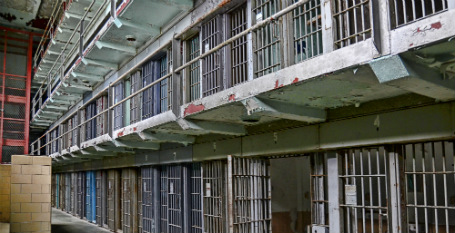Thailand is enacting a little known policy begun in 1993 of separating ‘sexual minorities’ within the prison system.
Now, it is understood that the government is considering an exclusively LGBT facility in the capital Bangkok.
In Pattaya Remand, for example, LGBT people spend the majority of the day doing activities and with the entire prison, but are sleep in their own
"If we didn't separate them, people could start fighting over partners to sleep with," said Pattaya Remand Warden Watcharavit Vachiralerphum. "It could lead to rape, sexual assault, and the spread of disease."
"There are people that discriminate against gays," Chawalit Chankiew, sentenced to nine years for document forgery, told the Associated Press. "If I happen to sleep next to someone who hates gay people, I wouldn't know it unless they show it. What if they hurt me one day?"
Theerayut says the prison's segregation makes her 1 ½-year sentence more bearable. "If we behave like others, if we aren't stubborn and don't break rules, this place actually isn't so vicious," she said, sitting in a prison yard fenced with barbed wire, her long hair bobbing up and down as she spoke.
Plans for a separate facility for LGBT inmates on the outskirts of Bangkok has had a mixed response and some activists believe it could lead to further discrimination.
"Building and reallocating an entire prison facility for LGBT prisoners is as a matter of fact a measure of segregation," Jean-Sebastian Blanc, an expert on prisons at the Switzerland-based Association for the Prevention of Torture, told the Associated Press. "There is a significant difference between a public health policy aiming at preventing transmissible diseases and segregating a segment of the population on the basis of their sexual orientation or gender identity.”
"It'd be easier to control, easier to take care of, easier to develop and improve their habits and behavior," said Watcharawit. "But they have to mix with other inmates because once they're released, they'll have to rejoin a diverse society."

